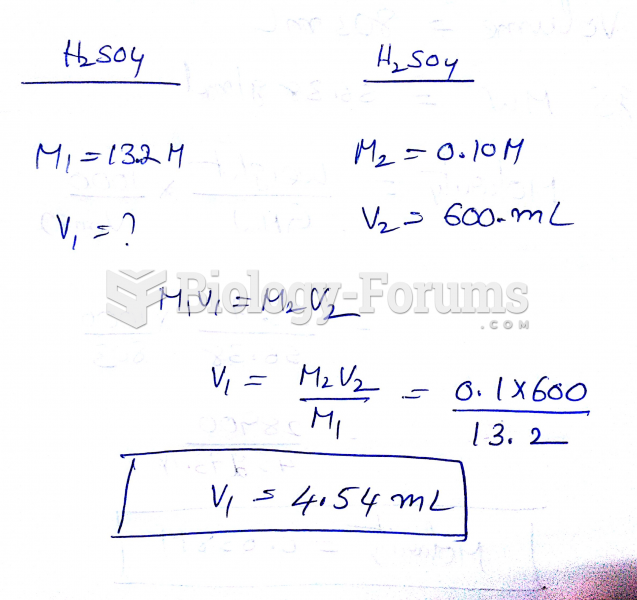|
|
|
Hyperthyroidism leads to an increased rate of metabolism and affects about 1% of women but only 0.1% of men. For most people, this increased metabolic rate causes the thyroid gland to become enlarged (known as a goiter).
The familiar sounds of your heart are made by the heart's valves as they open and close.
In most climates, 8 to 10 glasses of water per day is recommended for adults. The best indicator for adequate fluid intake is frequent, clear urination.
HIV testing reach is still limited. An estimated 40% of people with HIV (more than 14 million) remain undiagnosed and do not know their infection status.
All adverse reactions are commonly charted in red ink in the patient's record and usually are noted on the front of the chart. Failure to follow correct documentation procedures may result in malpractice lawsuits.
 Tubal ligation. To minimize the size of the incisions necessary, laparoscopic surgery may be used to
Tubal ligation. To minimize the size of the incisions necessary, laparoscopic surgery may be used to
 Step 1 is to verify the customer concern or problem. If the problem cannot be verified, then the ...
Step 1 is to verify the customer concern or problem. If the problem cannot be verified, then the ...





